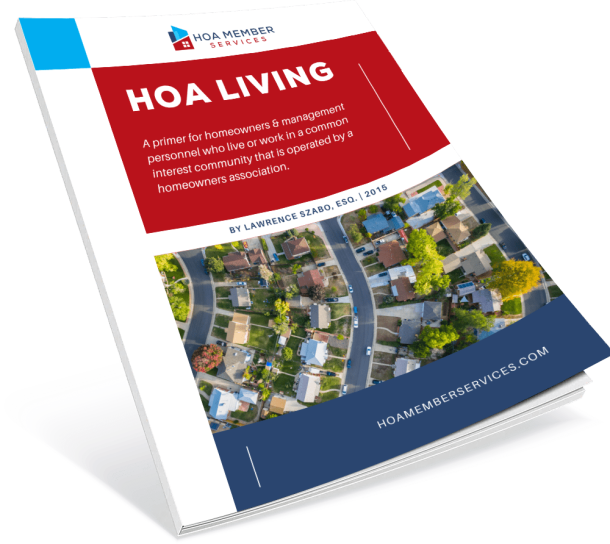Are you dealing with an unexpected plumbing issue and unsure whether it’s your responsibility to fix it, or should the HOA be stepping in to handle it? If so, you’re not alone.
Understanding who is responsible for what in communities with homeowners associations (HOAs) can leave even the most seasoned homeowners scratching their heads. And when it comes to plumbing — something you rarely think about until there’s a problem — the confusion only deepens.
HOAs are tasked with maintaining the shared spaces and systems of a community. But with something as complex as plumbing, the lines between common areas and personal responsibility can blur. Is that pipe leak your problem? Or does it fall under the association’s jurisdiction?
In this guide, we’ll part the fog and make things clearer for you. You’ll learn the ins and outs of HOA plumbing responsibilities, from who handles repairs in shared pipes to what you should do when a plumbing problem arises.
So, let’s make sense of it all!
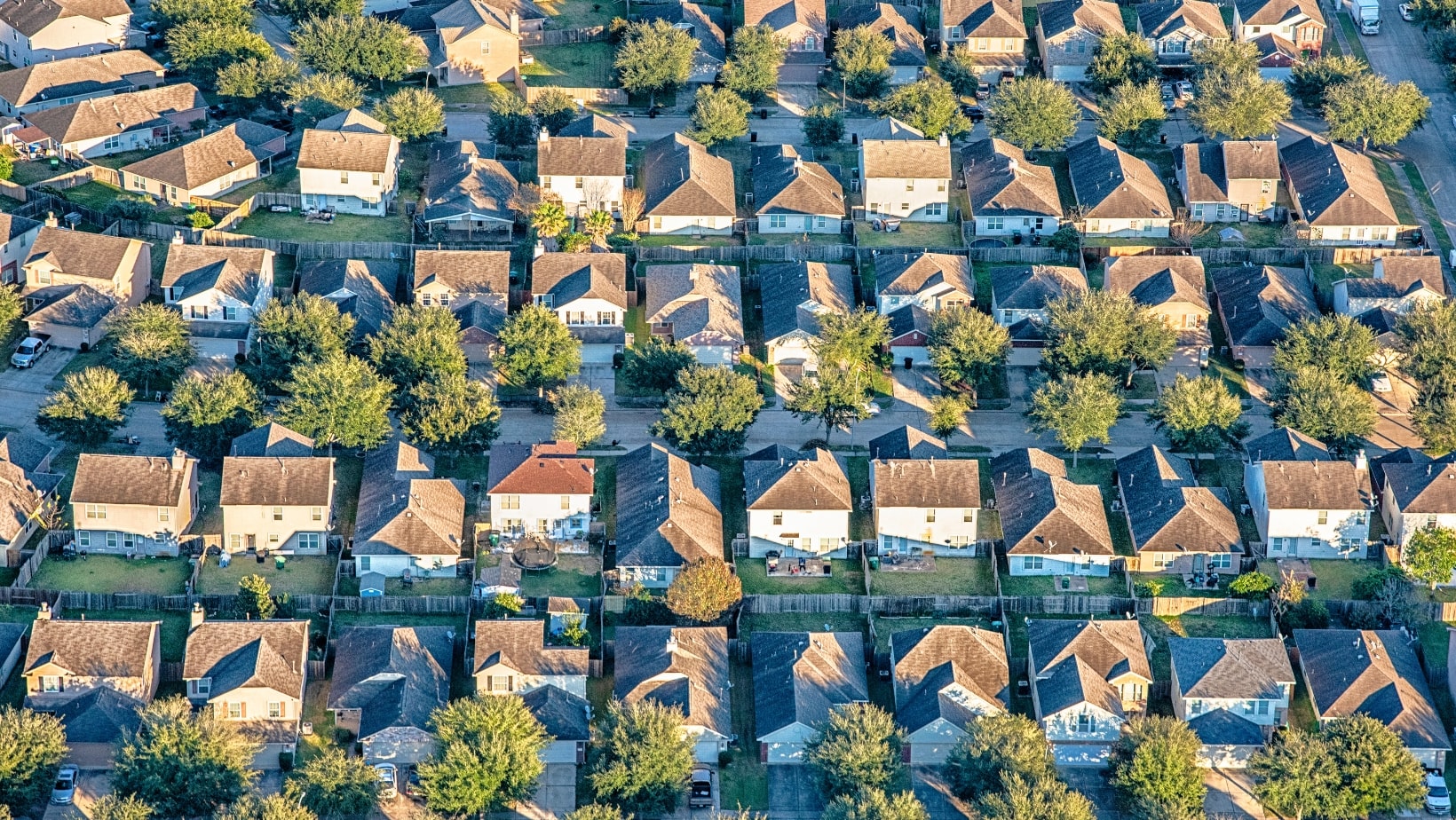
What is an HOA?
If you’ve ever lived in a community governed by a homeowners association, you know they play a key role in keeping the neighborhood in shape. But what exactly do they do?
HOAs are organizations formed by residents, typically in condos or planned communities, to manage shared spaces and uphold rules designed to maintain the neighborhood’s appeal. Think of them as the behind-the-scenes crew making sure everything runs smoothly and stays orderly.
There are numerous advantages of an HOA. Here’s a quick rundown of their core responsibilities:
- Managing and maintaining shared areas like pools, parks, and clubhouses
- Enforcing community rules, including architectural guidelines and noise restrictions
- Collecting dues from homeowners to fund neighborhood maintenance and projects
- Resolving disputes between residents and ensuring community harmony
In short, HOAs are like glue that holds the community together by keeping things looking good, maintaining property values, and ensuring everyone is on the same page.
Understanding HOA and Homeowner Responsibilities
Here’s a simple breakdown to help you understand how things typically work.
Common vs. Private Property
The big question is usually, “Where is the problem happening?” In an HOA, the distinction between common and private property can make all the difference in who’s footing the repair bill.
- If the plumbing issue involves shared infrastructure — like pipes that serve the entire building, running through communal areas or underground — it’s considered common property. This is usually the HOA’s domain.
- On the other hand, private property refers to what’s inside your own individual unit — think pipes running directly into your bathroom or kitchen sink. If a leak springs up in those, you, the unit owner, are likely on the hook for the fix.
Think of it this way: if it’s inside your home and only affects your space, you’re likely responsible.
Limited Common Elements
Then, there’s the gray area of limited common elements, which can complicate things. These are parts of the property that are shared by more than one unit but aren’t accessible to the whole community.
Examples include balconies, fences, patios, exterior doors, air conditioners, water heaters, HVAC systems, or certain pipes that serve multiple units but aren’t part of a larger shared system.
More specific examples of a plumbing system can be:
- A vertical plumbing stack that only connects to the units on one side of the building
- Drainage systems that service only a few units but are outside the individual apartments or homes
In most cases, the HOA is responsible for repairing limited common elements since they affect more than a single unit. However, individual unit owners may be responsible for maintaining smaller parts of these systems, such as cleaning drains or monitoring the condition of plumbing specific to their unit’s connection.
Limited common elements can sometimes trip up homeowners who assume they’re entirely HOA territory when they actually require some homeowner involvement. This is why it’s so important to check your HOA’s governing documents to understand the rules around these.
Importance of the Governing Documents
Speaking of governing documents, this is where things get specific. Each HOA operates a bit differently, and your HOA’s declaration, CC&Rs (Covenants, Conditions, and Restrictions), and bylaws clearly spell out who is responsible for what.
These documents are the backbone of how your HOA functions, and they’ll outline the exact division of responsibilities when it comes to plumbing maintenance.
Whether the issue falls under common property, limited common elements, or private property, these documents will tell you whether the HOA or the individual owners are responsible for handling the repair. So, it’s always a good idea to review them closely when any issues arise.

Plumbing Systems in an HOA Community: What You Need to Know
How your plumbing system works might not be the first thing that comes to mind when thinking about your HOA community, but it’s something you’ll want to understand before an issue arises.
Whether you live in a condo or a single-family home within an HOA, the way plumbing responsibilities are divided can affect what you pay for — and what the HOA covers. Here’s a quick rundown on the division:
Types of Plumbing Systems in HOAs
There are two main types of plumbing in an HOA setting:
- Shared Plumbing Systems: If you’re in a condo community, chances are you have a shared plumbing system, unlike single-family homes. This means that many of the pipes you rely on serve multiple units and run through common areas of the condo building, like hallways or shared walls. The good news is unit owners don’t need to worry about handling repairs in these areas. The HOA is typically responsible for maintenance duties and major repairs of these shared pipes, such as drain lines and water mains.
- Independent Plumbing Systems: On the flip side, if your community is made up of single-family homes, your plumbing is likely independent. This means that each house likely has its own drain and supply lines. In this case, the pipes within a private unit — inside the walls or running under the yard — are the responsibility of the individual owner to maintain and repair. The HOA won’t cover those costs, so it’s important to stay on top of the maintenance responsibilities of your separate interests.
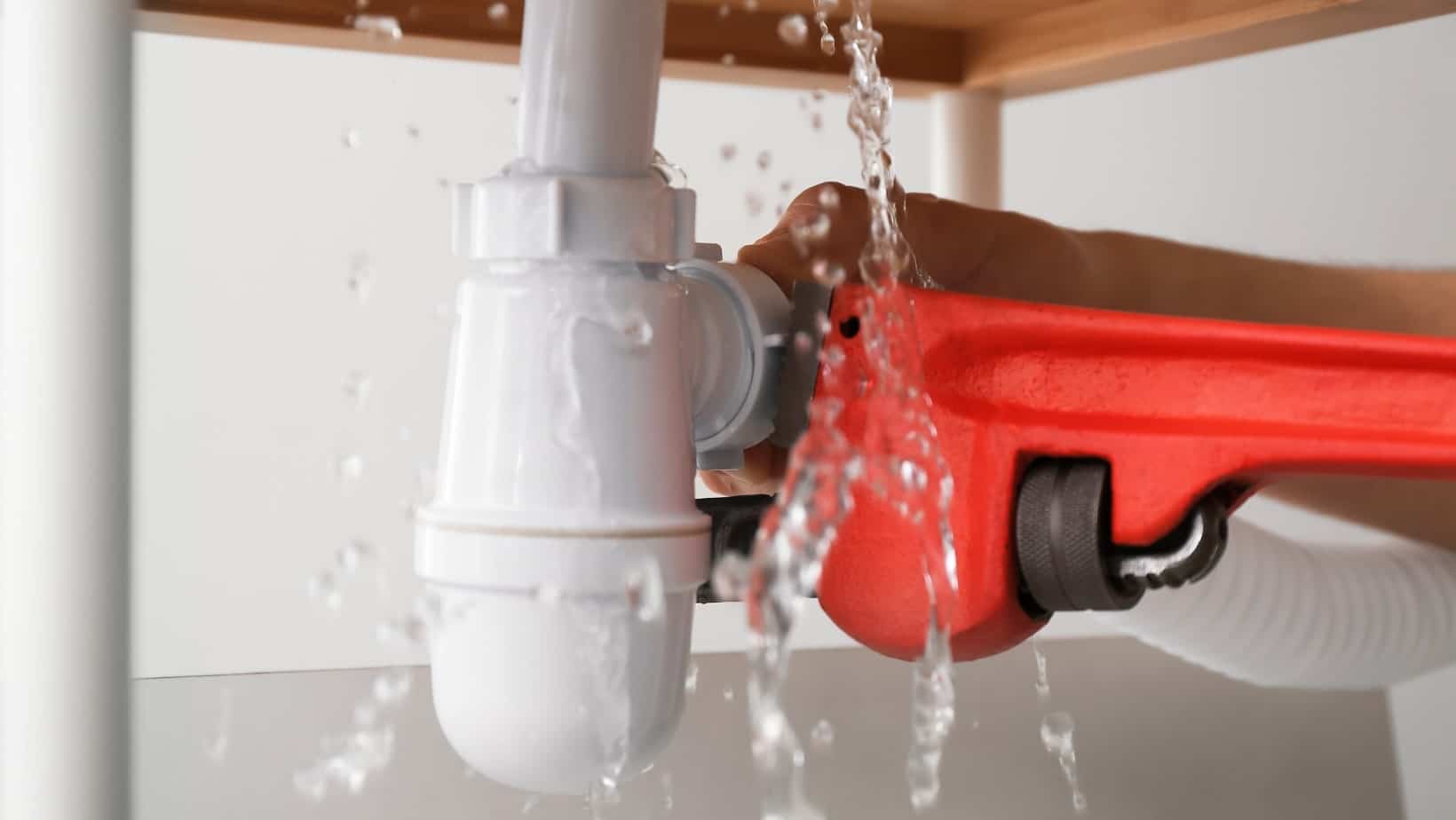
Where the Division of Responsibility Typically Lies
So, where does the HOA’s responsibility end and yours begin? Generally speaking, it’s a matter of location.
If the pipes are only inside individual units or houses, they’re the unit owners’ to handle. However, when the plumbing serves multiple units and extends into common walls, shared spaces, or underground, it usually becomes the HOA’s responsibility.
Sounds simple enough, right? But sometimes, things can get murky. Here’s why:
The Gray Areas
This is where confusion can arise. For example, who handles a pipe that runs under a common area but serves only your individual unit? Or what happens when a clogged shared sewer line causes backups in multiple homes?
These scenarios often lead to disputes. One homeowner’s leaking pipe might damage a neighbor’s unit, or a shared water line might burst, leaving multiple homes without service.
The trick here is knowing where the boundaries are drawn — literally. So, let’s explore who will take responsibility for repair costs in these situations.
Common HOA and Condo Association Plumbing Scenarios and Who’s Responsible
Plumbing issues in HOA and condo communities can get confusing quickly — who’s holding the bill for costly repairs when a pipe bursts or a drain backs up? The answer depends on where the issue occurs, what type of damage is involved, and whether it affects shared or private spaces.
Let’s have a look at some common (and not-so-common) scenarios to see where responsibility lands so you know exactly what to expect.
1. A Pipe Bursts Inside a Unit
Imagine you’re sitting in your living room when, suddenly, water starts pooling at your feet. It’s a homeowner’s worst nightmare: a burst pipe. So, who’s responsible for fixing it?
In most cases, if the pipe is inside your unit, it’s up to you, the homeowner, to cover the repairs. That means calling the plumber and footing the bill.
But there are exceptions. If the damage from the burst pipe impacts any structural parts of the building that are considered common elements — like shared walls, floors, or ceilings — the HOA may have to step in.
Their responsibility kicks in when the integrity of the building or neighboring units is affected. So, if that water leak spreads beyond your unit, it’s time to get the HOA involved.
2. A Clogged Sewer Line
Now, the gurgling sound from the drain that we all dread! Clogged drain lines can be a nightmare, but who’s responsible depends on where the clog is. If the blockage is just limited to your unit’s plumbing, like a backed-up toilet or sink, it’s usually your responsibility to fix it.
But what if it’s a bigger issue affecting the whole building? This is where things can shift. If the clog is in a shared sewer line that services multiple units (and sometimes that’s a tricky determination), then the HOA is typically responsible.
A key thing to remember here is the location of the problem. When in doubt, call a plumber to assess the situation and provide clarity before the HOA gets involved.
3: Plumbing in Common Areas (e.g., Clubhouse, Pool, Fitness Center)
Now, let’s talk about the unseen pipes that we often forget about beneath those glossy common spaces like the clubhouse, pool, or gym. These are spaces shared by all the residents, so naturally, the HOA is responsible for any plumbing problems here.
Whether it’s a water leak in the fitness center or clogged drain lines in the pool locker room, the HOA will handle both regular maintenance and emergency repairs. Homeowners usually don’t have to worry about footing the bill for repairs in these areas unless they somehow caused the damage.
Routine maintenance, like checking for leaks or fixing minor issues, is part of the HOA’s ongoing responsibility to keep these spaces functional and safe for everyone. But if something unexpected happens, like burst pipes or water heaters going out, the HOA will cover the repair costs.
4. Leaks in Walls or Ceilings Between Units in a Condo Association
Who is responsible for pipes in condo walls or ceilings? Individual owners or condominium associations? Well, the “in-between” spaces of condos can get a little tricky. Repair responsibilities depend on where the leak originates and the structure of the condo plumbing system.
If the leak is from a pipe that serves only your unit, it’s generally your responsibility as an individual unit owner to cover the repair.
However, if the issue didn’t arise from individual units but a shared pipe that impacts several units, the condominium association often steps in to take care of the problem. This can include anything from fixing a leaking pipe to replacements for a leaky roof affecting several units simultaneously.
But here’s the thing: When you notice water dripping from the ceiling or seeping through the interior walls between condo units, it can be hard to tell whether it’s coming from your unit or a shared pipe.
So, since it’s not always easy to identify the source of the leak, the first thing condo owners should do is notify their community associations, even if they’re not sure who’s responsible. They can help determine whether the problem stems from individual units or if it’s part of a larger issue with the structural components of the condo community.
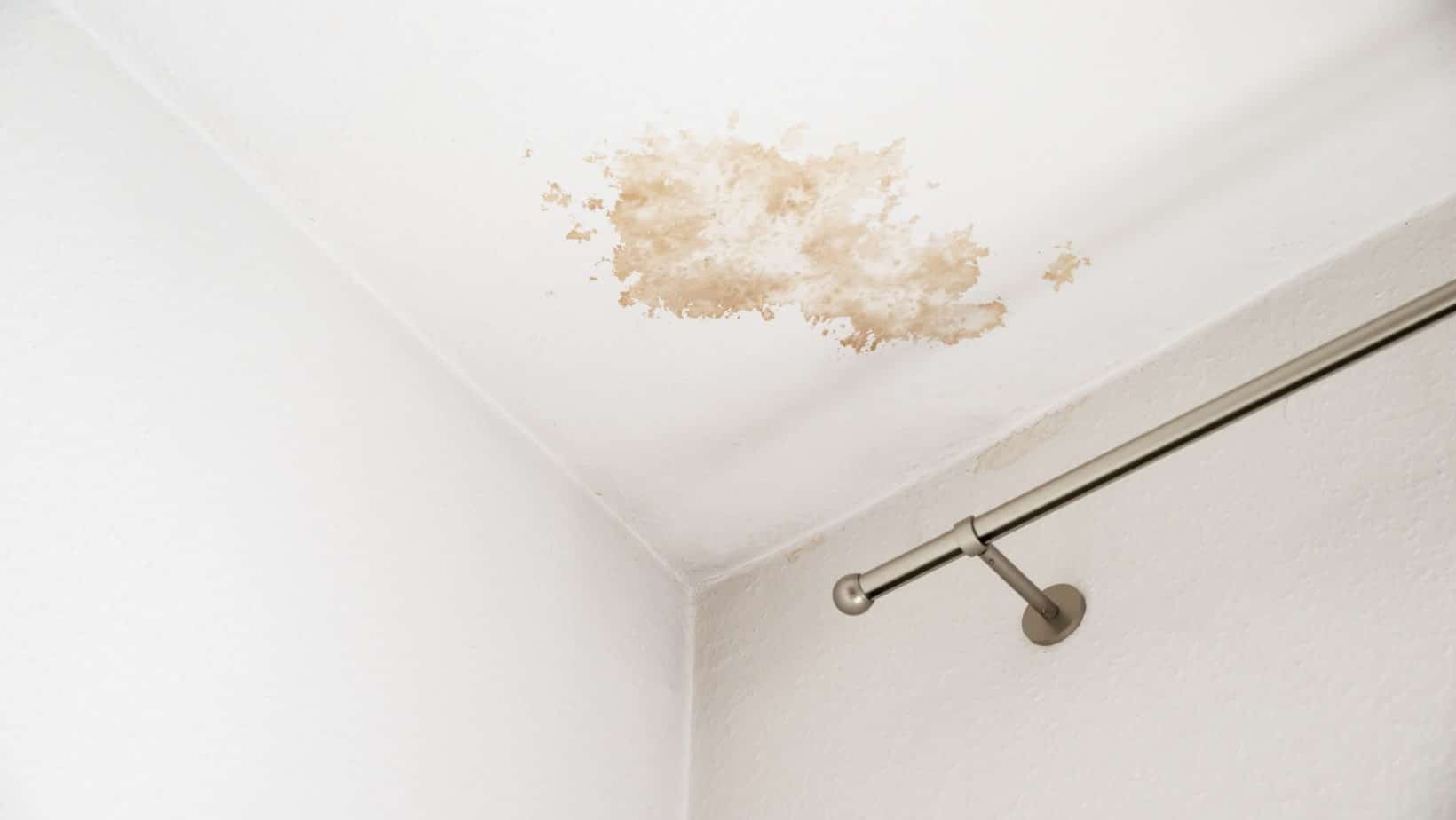
Resolving Disputes Over Plumbing Responsibilities
Notifying the board members will sort things out most of the time, but it can sometimes also lead to disagreements. Disputes over HOA’s plumbing responsibilities can be frustrating, but they’re a pretty common issue.
Fortunately, with the right approach, these disagreements don’t have to turn into long-standing conflicts. Let’s break down some of the most common reasons these disputes happen and what you can do to resolve them.
Common Causes of Disputes
Here are a few of the most common reasons this happens:
- Misunderstandings about responsibility: One of the biggest issues is simply not knowing who bears responsibility for the plumbing repairs. Is it a pipe in the wall (which might leave the HOA responsible), or is it a fixture within the house that the unit owner should handle? When it’s unclear, tension can build.
- Delays in repairs: Plumbing issues need to be fixed fast. If there’s a delay — whether it’s waiting for an HOA decision or scheduling a repair — damage can get worse, and frustrations can escalate quickly. We’ll tell you how to deal with that later in the article.
- Hidden damage: Sometimes, the problem isn’t obvious right away. Leaks inside walls or under floors can go unnoticed for a while, and when they’re finally found, it’s harder to tell where the problem originated or who should be responsible.
How to Approach the HOA for Clarification
When a plumbing problem comes up, and you’re not sure if it’s yours or the association’s responsibility, it’s important to handle it the right way.
- Review governing documents: Start by getting the information you need. Your HOA’s governing documents, like the CC&Rs (Covenants, Conditions, and Restrictions), should outline what areas the HOA is generally responsible for and what’s on the homeowner. Take a look to see if there’s anything specific to your plumbing situation.
- Send a formal request: If the documents aren’t clear or you’re still unsure, send a formal request to the HOA. You can write an email or letter to the HOA board or property manager asking for clarification. It’s always a good idea to have something in writing for future reference.
- Get advice: If the documents and the HOA’s response leave you with more questions than answers, you might want to seek advice from a property manager, attorney, or other professional familiar with HOA rules. They can help you interpret the documents and figure out who’s really responsible.
Mediation and Legal Options
If you’ve tried all the steps above and still can’t reach an agreement, you might need to take things a step further. Fortunately, there are ways to resolve disputes without dragging things out too long:
- Mediation: If you and the HOA are at an impasse, mediation can be a great way to resolve the issue. A neutral third party helps both sides talk it out and hopefully reach a resolution that works for everyone.
- Small claims court: If the dispute involves a financial loss, and mediation doesn’t work, you might consider small claims court. This is a simpler way to handle legal disputes, and it’s often faster and less expensive than full-blown litigation.
- Consult a lawyer: When it comes to bigger, more complex disputes, you may need to bring in a lawyer to help you navigate the legal aspects. They can help you figure out if you have a case and guide you through the process.

How HOA Plumbing Rules Vary by State
When it comes to plumbing responsibilities in an HOA, what’s required can change drastically depending on where you live. State laws play a huge role in determining who’s responsible for maintaining plumbing systems — whether it’s the HOA or the unit owners.
Let’s break down how these rules shift across a few key states:
California: Who is Responsible for Pipes in Condo Walls?
In California, HOA laws are pretty unique, thanks to the Davis-Stirling Act, which governs a lot of how homeowner associations operate in the state. This law spells out who’s responsible for what when it comes to maintaining and repairing plumbing in condo walls.
In most cases, this law puts HOAs in charge of maintaining shared systems. However, if the problem is inside a unit’s walls and affects only that unit, the unit owners might be responsible for fixing their individual units.
It’s all about figuring out whether the pipes are part of the common area or exclusively servicing your unit.
Florida: What Does State Law Say About Shared Pipes in Condos?
In Florida, the state’s condominium statutes make it clear who is responsible for plumbing, depending on where the pipes are located.
It is similar to California — shared pipes that run through walls between units usually fall under the HOA’s care. But, if there’s an issue with pipes that serve the units separately, the responsibility can shift back to the individual owners.
Florida’s laws also focus on whether plumbing is considered a common element or an individual element, and sometimes, these distinctions can lead to confusion. In any case, your association’s governing documents should break down who needs to step in when plumbing issues arise.
Texas: How Does Texas Handle HOA Plumbing Issues?
Texas approaches HOA plumbing responsibilities a little differently. Here, the responsibility often hinges on whether you live in a condo or a townhome.
For condos, Texas property codes usually place the responsibility on the HOA to maintain shared plumbing systems, but if the issue is within an independent unit’s walls, the unit owner might be responsible.
In townhomes, which can operate more like standalone homes, the unit owners may have more responsibility for all plumbing, even if it runs through shared walls.
Texas has its own unique approach to dividing these responsibilities, so it’s crucial to know whether you’re dealing with shared or individual systems.
New York: Who Covers Plumbing Maintenance in a Condo?
In New York, the laws are a bit more straightforward, but it depends on whether you’re dealing with a condo or a co-op.
Condo owners in NYC typically follow a clear division where the HOA handles plumbing repairs for shared systems, like main water lines, while the homeowner is responsible for anything within their walls.
However, co-ops work differently. Since residents in co-ops don’t technically own their units, plumbing issues inside apartments might fall to the cooperative corporation.
New York’s laws are focused on ensuring common areas are maintained, but homeowners or residents should be aware of the fine print in their building’s specific rules to avoid confusion.
How to Protect Yourself as a Homeowner
Plumbing issues are one of those things that can sneak up on you when you least expect it, and when you live in a homeowners association, things only get trickier.
Here are some key ways you can make sure you’re not left with a hefty repair bill or scrambling in a plumbing emergency:
1. Know Your HOA Documents
One of the most important things you can do is actually read through your HOA’s governing documents before you even buy the property. Yes, it might seem like a lot of paperwork, but trust me, it’s worth it.
Pay special attention to the sections that deal with maintenance and repairs because those can reveal some crucial details about who’s responsible for what. Some plumbing repairs might fall under the HOA’s jurisdiction, while others could be entirely the homeowner’s responsibility.
You don’t want to get caught off guard with a repair you thought the HOA would cover but doesn’t. Knowing these details in advance can help you avoid any nasty surprises.
2. Homeowner’s Insurance
Plumbing problems can get expensive fast, so make sure your insurance policy is up to the task. It’s important to know what your policy covers when it comes to plumbing incidents.
Ideally, your insurance should cover damages caused by plumbing failures both inside your unit and from issues that might start in shared areas or common spaces.
Check if you’ve got the right insurance coverage in place so that you’re protected no matter where the problem starts. The last thing you want is to find out too late that your insurance doesn’t cover a major leak or water damage.
3. Consider Additional Plumbing or Water Damage Coverage
Here’s where many homeowners get tripped up — standard homeowner’s insurance policies often don’t cover everything. Slow leaks, sewer backups, or gradual water damage can sometimes fall outside of typical coverage.
To fully protect yourself, it’s a good idea to look into adding additional plumbing riders or specific water damage protection to your policy. Sure, it’s an extra expense, but it can be a lifesaver if you ever face an issue like a sewer backup that your regular policy won’t touch.
4. Be Proactive with Maintenance
Plumbing disasters don’t always happen overnight. One of the best ways to protect your home is to stay ahead of any potential problems by taking maintenance responsibilities into your own hands.
Regularly checking your plumbing fixtures and appliances for signs of wear or minor leaks can save you from bigger, more expensive issues down the road. A small drip today could turn into a flooded bathroom tomorrow.
It’s also a good idea to keep records of any problems you report to the HOA. That way, if an issue escalates or they drag their feet on repairs, you’ve got documentation of when you raised the flag.
5. Understand Emergency Protocols
If a pipe bursts in the middle of the night, do you know what to do? Who to call? The HOA? A private plumber? When a sudden plumbing issue strikes, knowing the emergency procedures can save you precious time.
Make sure you’re familiar with the HOA’s protocols — like whether they cover after-hours repairs or if you’ll need to hire your own plumber. Keep a list of emergency plumbing contacts handy, and don’t assume the HOA will handle everything.
Sometimes, you might be on your own, depending on the situation, so it’s good to be prepared for anything.
When the HOA is Slow to Act: What You Can Do
Let’s be honest — waiting on your HOA to fix a plumbing problem can feel like watching paint dry. You’ve reported the issue, but nothing seems to be happening. So, what can you do when you’re stuck in this frustrating situation? Here’s how to take control and get things moving:
Know What the HOA is Obligated to Do
First off, it’s important to know that your HOA has legal obligations when it comes to maintaining common plumbing areas, like pipes in shared walls or underground lines. They’re supposed to handle these repairs within a reasonable amount of time, though what “reasonable” means can vary.
Some HOAs have specific timelines laid out in their bylaws for handling maintenance issues — so it’s a good idea to check your HOA’s rules to see what they say about response times. But just because the HOA is responsible doesn’t mean they always act quickly, which is where things get frustrating.
Steps to Take When Repairs are Delayed
So, what do you do when the HOA is dragging their feet? Here are some steps you can take:
- Review the bylaws: Again, your first move should be to check the HOA’s bylaws or governing documents. They’ll usually outline what the HOA is responsible for, as well as the expected response time for maintenance requests. This will give you a sense of whether they’re truly behind or just taking the usual amount of time.
- Follow up regularly: If you feel like your request is being ignored, don’t be shy about following up. A polite but firm email every week or two can keep the issue on their radar. Remind them of the problem, include any new information (like if the issue is worsening), and ask for an update on when they plan to address it.
- Document Everything: One of the most important things you can do is keep a detailed record of everything. Each time you contact the HOA, make sure it’s in writing — whether that’s through email, a portal, or certified mail. Take photos or videos of the leaks, especially if it’s causing damage. Note any new developments, like water damage spreading or mold starting to form. These records can be invaluable if you ever need to escalate the situation to the board, a lawyer, or even small claims court.
- Involve the HOA board members: If the regular follow-ups aren’t getting results, it might be time to reach out to an HOA board member directly. Sometimes, the board members aren’t even aware of the problem because it’s getting bottlenecked by property management. Send a direct email to the HOA board, referencing the previous requests and emphasizing that it’s a community-wide issue that needs attention.
- Escalate if necessary: If things still aren’t moving, it may be worth consulting with a legal expert who specializes in HOA matters. This is a last resort, but knowing your rights and letting the HOA know that you’re aware of them can sometimes light a fire under them.
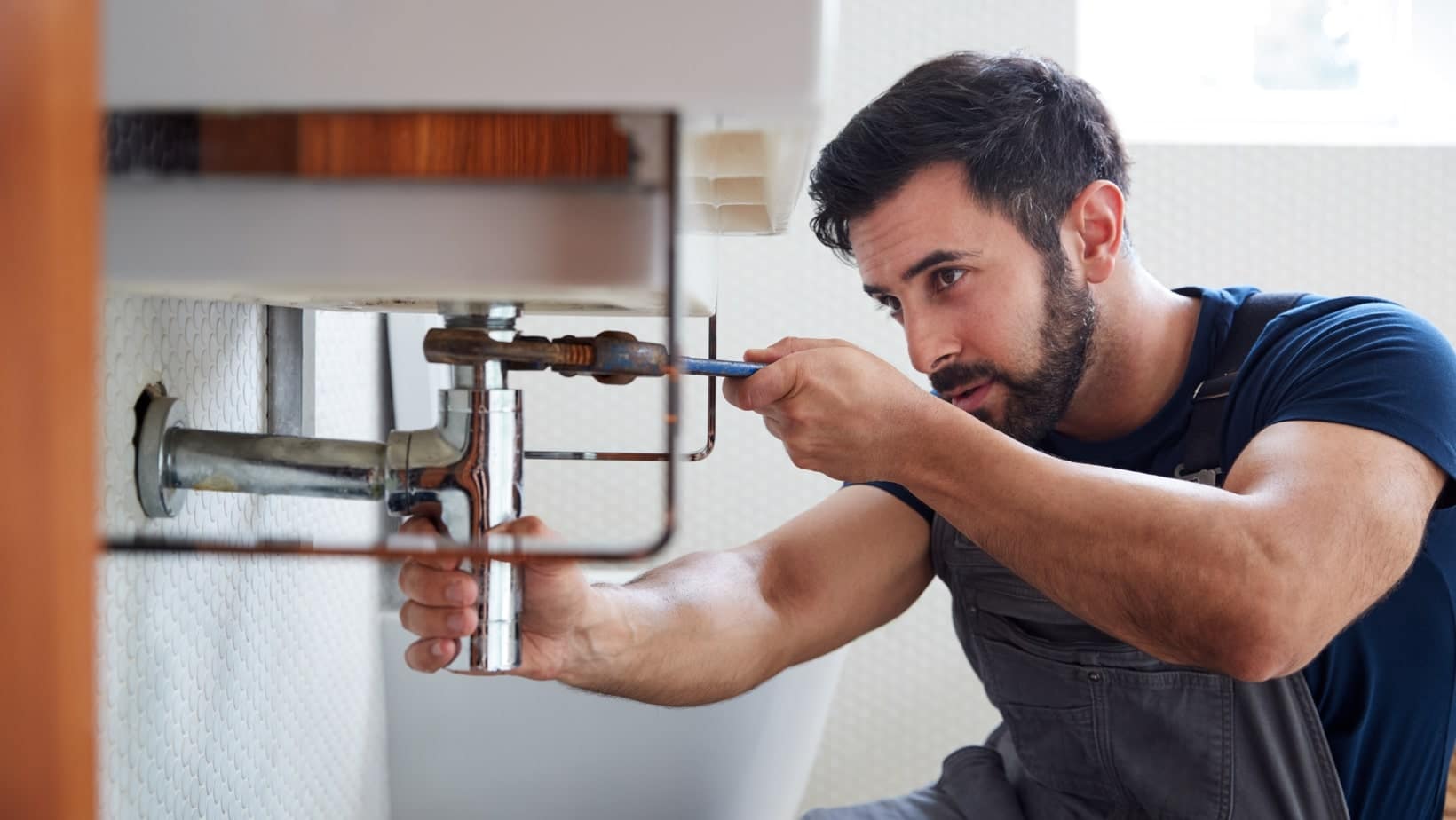
Final Thoughts
When it comes to HOA maintenance responsibilities, having a solid understanding is more than just a good idea — it’s a necessity. Nobody likes surprise plumbing headaches, and knowing exactly where the responsibilities of your homeowner’s association end and yours begin can save you from a lot of trouble.
By familiarizing yourself with how your plumbing system works and where the division of responsibility lies, you’ll know when to pick up the phone to call the HOA — and when it’s your turn to call a plumber!
Facing plumbing problems in your HOA? Don’t wait until they escalate; get the support you need now! Join us today for access to personalized HOA attorney services, state-specific resources, and expert guidance for resolving plumbing disputes and much more.

